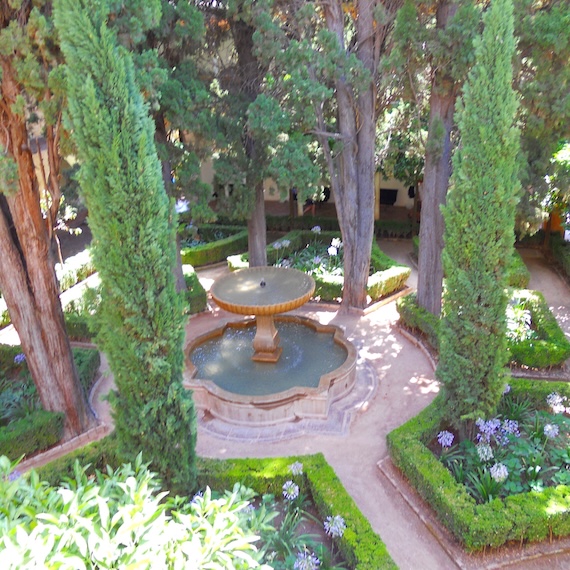Quatrain no. 12 in the first edition of Edward FitzGerald’s Rubáiyát of Omar Khayyám concerns the imperative to live in the moment and take our pleasures where we can, disregarding visions of future power or the afterlife, which we may never achieve.
XII.
“How sweet is mortal Sovranty!”-think some:
Others” How blest the Paradise to come!”
Ah, take the Cash in hand and wave the Rest;
Oh, the brave Music of a distant Drum!
This translation is based on no. 34 in the Bodleian manuscript, also found here.
گویند بهشتِ عَدْن با حور خوش است،
من میگویم که: آب انگور خوش است
این نقد بگیر و دست از آن نسیه بدار،
کاواز دُهُل برادر از دور خوش است.
I translated it as poetry in my own rendering of the Rubáiyát. Literally, the original has:
They say that the Garden of Eden with houris is delightful;
I say that the elixir of the grape is delightful.
Take the cash on the barrel head and don’t seek out a loan–
Since, brother, drumming is only pleasant when heard from afar.
transliteration:
gūyand behesht-e ʿadn bā ḥūr khosh ast,
man mīgūyam ke: āb-e angūr khosh ast.
īn naqd begīr o dast az ān nasīa bedār,
k-āvāz-e dohol barādar az dūr khosh ast.
—-
Order Juan Cole’s contemporary poetic translation of the Rubáiyát from
or Barnes and Noble.
or for $16 at Amazon Kindle
——
The Persian original does not mention ambition for power or sovereignty, but we have seen that it is deprecated in some of the verses already translated by FitzGerald, so as usual he is “mashing” more than one poem’s emphases together.
The first two hemistiches contrast the present pleasure of settling down with a fine vintage of wine to the pleasures promised in the Qur’an in paradise. So this stanza is quite blasphemous.
In Muslim imagery, the garden of Eden is not only the mythical setting of the first advent of humans, but is also the name of the heaven of the afterlife. The Qur’an, produced in the early 600s AD in arid Arabia, envisions paradise as lush and green, with shade and fruit trees, and with streams running through it. These elements are celebrated in Islamic art, as Emma Clark has discussed. She points that the only word mentioned as being spoken in the Islamic heaven is “Peace.” The houris are heavenly companions, described in erotic terms. They likely come from Zoroastrian lore, where the soul-force was thought to be a daena, in the form of an ethereal heavenly woman, which are made visible for believers in paradise.

Islamic garden at the palace complex in Granada meant to evoke the Qur’an’s image of paradise. 2010. © Juan Cole.
One of the words for paradise in the Muslim scripture is firdaws, a loan from Persian pairidaeza, “around a wall,” that is, a walled enclosure or garden. Pairidaeza also came into Greek from Iran, as paradeisos, originally meaning a park. It was used in the Greek Bible for heaven, and it then was taken into English as paradise. So the Qur’an’s firdaws and the English paradise are descendants of the same Old Persian word meaning enclosed garden or orchard.
Here, the word used is the Persian behesht. “Beh” in Persian means “good.” The Good Place is also a phrase we use in English
Enjoying the pleasures of life immediately in this verse is compared to spending cash rather than dealing with money in the form of a loan, which involved delayed gratification. Likewise, the Persian line cleverly points out that all the talk of the next life sounds appealing when the prospect is far off, but maybe not so much as the reality nears, just as drumming is better appreciated from a distance.
These unconventional Persian quatrains openly question the afterlife and even the existence of God, which made them appealing to British Radicals like FitzGerald and then the Pre-Raphaelites, who were pioneering new forms of secularity and unbelief in Victorian Britain. They saw in this poetry a kindred endeavor and promoted it widely. They were impelled to unbelief by the new findings of science about geology and the dinosaurs, which disproved the Bible’s short chronology of 6,000 years for the age of the earth, and by their interest in unconventional forms of sexuality — whether queerness or polyamory. Here too the Rubáiyát corpus expressed similar ideas along with its skeptical approach to religion.
For more commentaries on FitzGerald’s translations of the Rubáiyát, see
FitzGerald’s Rubáiyát of Omar Khayyám: Commentary by Juan Cole with Original Persian


 © 2026 All Rights Reserved
© 2026 All Rights Reserved